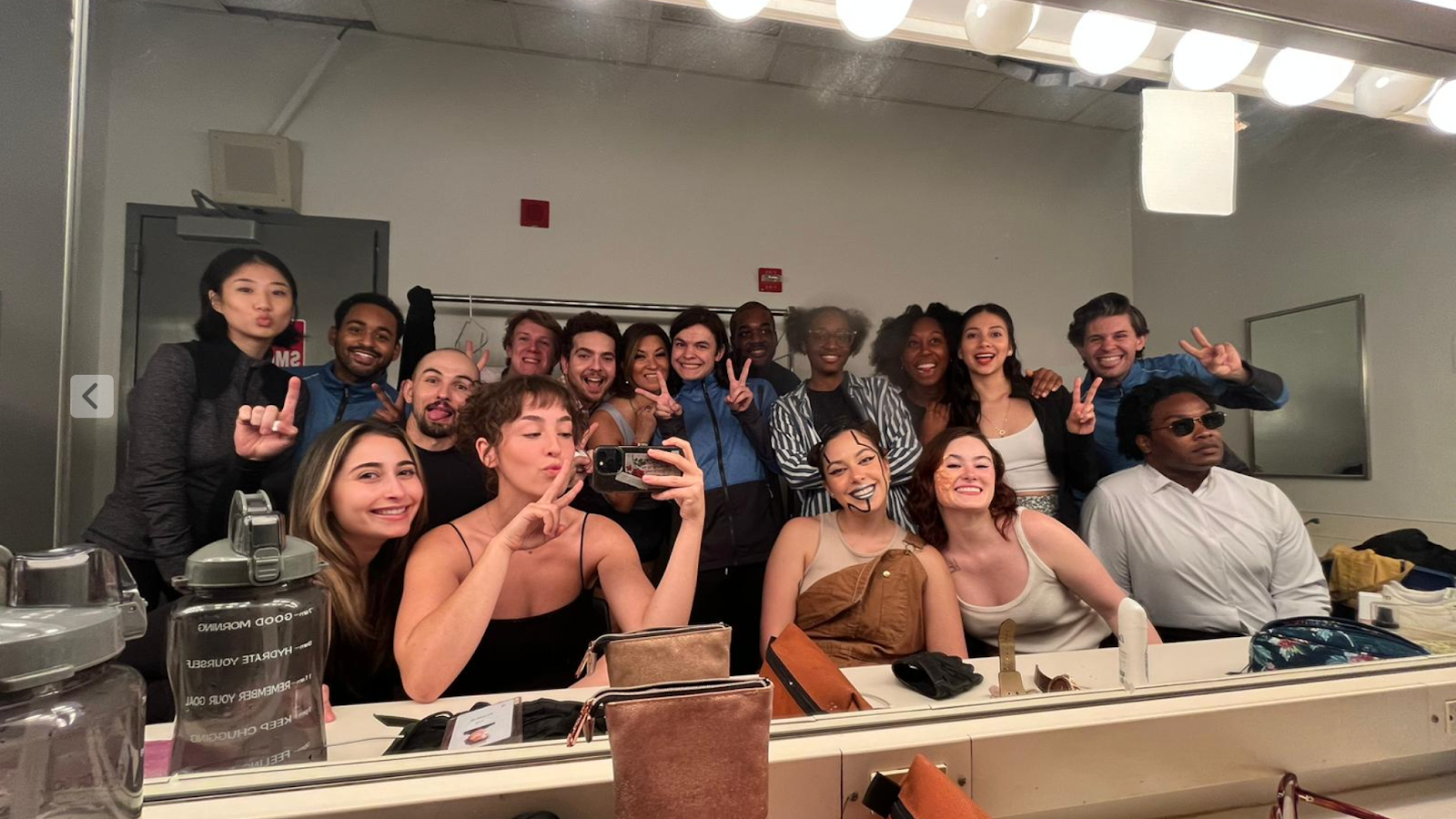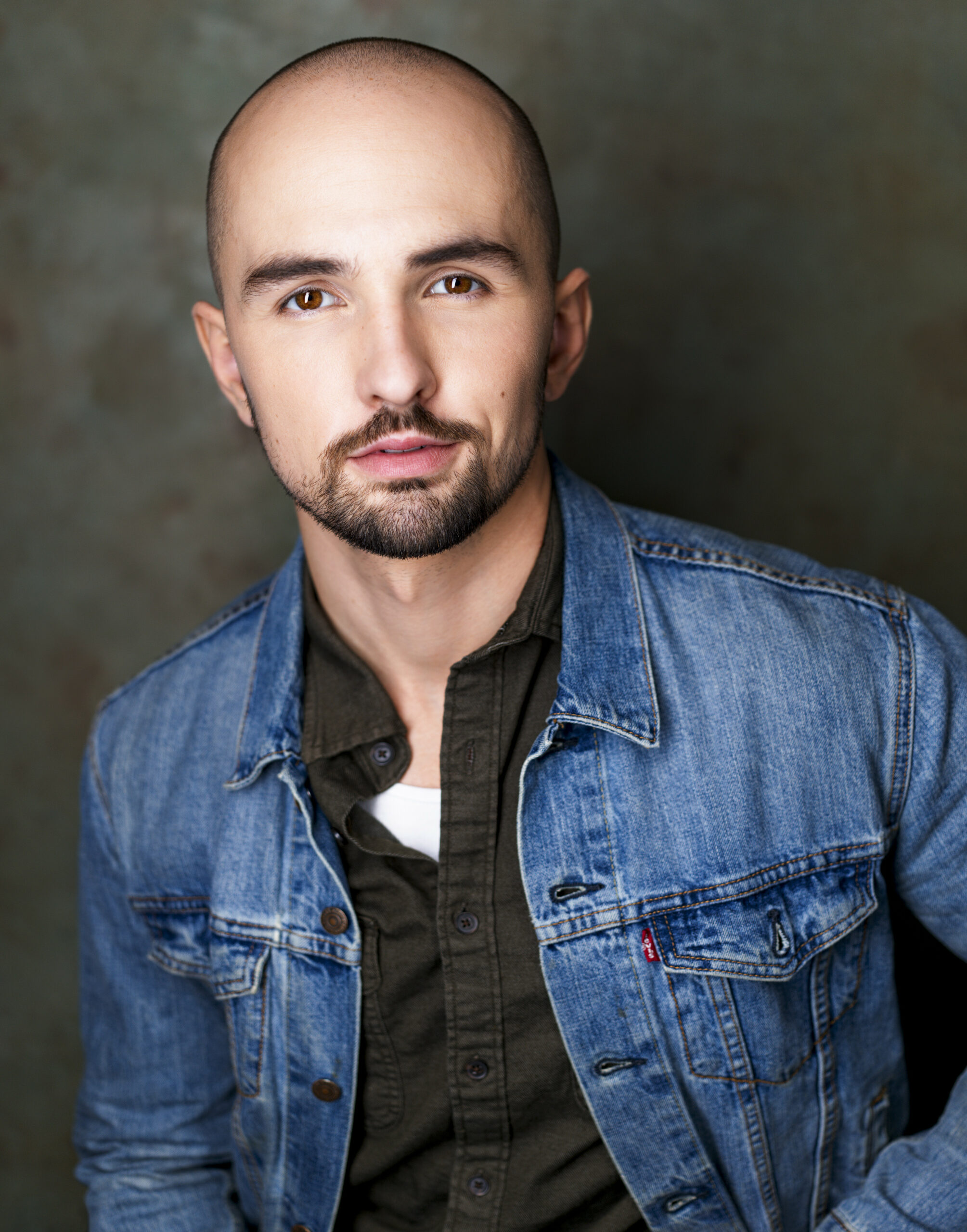“My favorite thing about my time at Atlantic was the cohort of wonderful humans I got to share that time and space with.”

By Bart Błachnio
On the eve of my first night of Evening Conservatory classes, if you had asked me to articulate what my expectations were for the year ahead I’m not sure I could’ve given you a coherent answer.
I came to Atlantic having lived a lot of life and gained a lot of perspective. I was steadily climbing the proverbial corporate ladder and looking to make a change in my life: a pivot to something more fulfilling. I now know that what I was looking for was a place that would help me build a community of peers, demystify the script analysis and preparation processes, and instill some much needed confidence in my instinctual choices. Looking back, Atlantic met those expectations in spades, and gave me the space and tools I needed to begin the journey of finding myself as an artist.
I’ve had an untraditional path to being an actor—if there even is such a thing as “traditional” in this business. I guess what I mean by that is, I wasn’t steeped in the arts as a kid. It wasn’t until my early/mid twenties that I discovered my own sense of artistry and creativity. I was an undergraduate at Rutgers University, listless and uninspired by my impending graduation with degrees in Sociology and Criminal Justice, looking to finally do something outside of my comfort zone. I dove in head first. That year, I started coming into the city to take dance classes (I had never danced a day in my life) and signed up for a couple of basic acting electives at Rutgers’ Mason Gross School of the Arts. Something clicked, as it so often does when you finally align what you’re doing with what inspires you. I wish I could say the rest was history, but it would still be a little while before I embarked on the journey of life as an artist. I did end up studying dance for nearly two years and minoring in theater, though.
My initial post-grad years were dedicated to the sensible and the pragmatic. I’m a first generation only child of a single parent immigrant mother, after all. Mom worked hard to get us here and my goal was to not mess anything up. Life as a working artist was unstable and, therefore, not in the cards, so I headed for the safe pastures of corporate America, with its health insurance, salary, and promise of one day paying off those student loans. That decision, in hindsight, is what landed me at Atlantic years later when I needed to find a program that would fit around my existing work schedule. I was coming off of several months of drop-in scene study classes and ad hoc study, weighing my options for something with more rigor and structure. Atlantic wasn’t the only school to offer an evening conservatory, but it was one of the few to offer an efficiently paced, one year option—which was important to me, a late-starter with a chip on his shoulder wanting to get the ball rolling sooner than later. It was enough to get me to apply.
The application was straightforward and the audition process smooth. My zoom audition was the first introduction I had to Practical Aesthetics. If the natural fit of program length and class schedule with my life was what got me to apply, the approach of PA as a technique was what made me feel confident in my decision to invest my time and resources into Atlantic. The simplification of what can so often be a complex-seeming preparatory process into a few concrete and uncomplicated questions that help you get to a playable, physical action with immediacy is something that any actor would find appealing.
Today, almost six months out from completion of my EC term, I regularly lean on Practical Aesthetics to discover what my characters need and what is at stake for them. It has become a shorthand for finding physical life in an abstract want.
Leveraging the reality of the words that are literally being said in a scene, the way PA necessitates, has resulted in some of the most confident choices I’ve made as an actor.
I learned pretty early on that an acting career is not built by a single set of hands. There are some exceptions to this rule, but for the most part we are all in this together. Script analysis techniques and opportunities to study while working are all well and good, but this is a tough business without two additional things that make the journey easier: loved ones who support you and peers that push you beyond your own perceived limitations. More than script analysis prowess and confident artistic choices, I came to Atlantic searching for a found family. When I got accepted to Atlantic, my mind wandered to thoughts of who would form my ensemble. Would I get along with them? What kinds of walks of life would they come from?
Of everything I’ve spoken to in this blog post so far, it is without a shadow of a doubt that I say that my favorite thing about my time at Atlantic was the cohort of wonderful humans I got to share that time and space with.
We were patient with one another, looked out for each other, and pushed ourselves to vulnerable and wonderful places in the work we did together. I know earlier that I said the one year nature of the evening conservatory appealed to me, but I would gladly have stayed longer if it meant I got to do more work and spend more time with my 2023 Evening Conservatory ensemble.
For me, Atlantic was a conduit for friendships to form, artistic partnerships to flourish, and lifelong connections to be made—and for that I am thankful.
Bart Błachnio

Bart Błachnio (pronounced “Bwa – H – Ño”) is a Polish-born American actor from New Jersey and professionally based out of his adopted home of New York City. He’s a graduate of Rutgers University and has conservatory training from Atlantic Acting School. In addition to his Atlantic training, Bart has upped his game studying film & tv acting at Heidi Marshall Studio, sharpened his on-camera skills with The Bob Krakower Gang, and honed his Meisner technique at T. Schreiber Studio.
Since completing the Evening Conservatory program last July, Bart has applied his Practical Aesthetics training in classes with top NYC casting directors for stage and screen, been invited to participate in developmental readings, and performed during the NY Theater Festival’s Fall / Winter season, among other highlights.
On the horizon, Bart will be on stage at Stone Circle Theatre in City Gate Productions’ showing of 12 Angry Men as Juror #4; Atlantic’s own 2024 Alumni Showcase; as well as returning to lend his voice in the final season of the Indie Series Award-winning scripted podcast, Forever and a Day, which will air later in 2024.
When not acting, Bart has two years of dance training in various styles under his belt, worked as a freelance photographer, and built a career in New York’s advertising tech scene—so you can add corporate buzzwords to his language fluency, alongside English and Polish. He also enjoys physical fitness and practicing his stage combat training when time allows.
Website: www.BartBlachnio.com
Instagram: @HeyBartosz
Evening Conservatory
Designed for the working actor, the Evening Conservatory distills the physical, emotional, and analytical tools of acting into a concentrated three-semester program. Students will push beyond their creative comfort zones to take their talents to new heights.